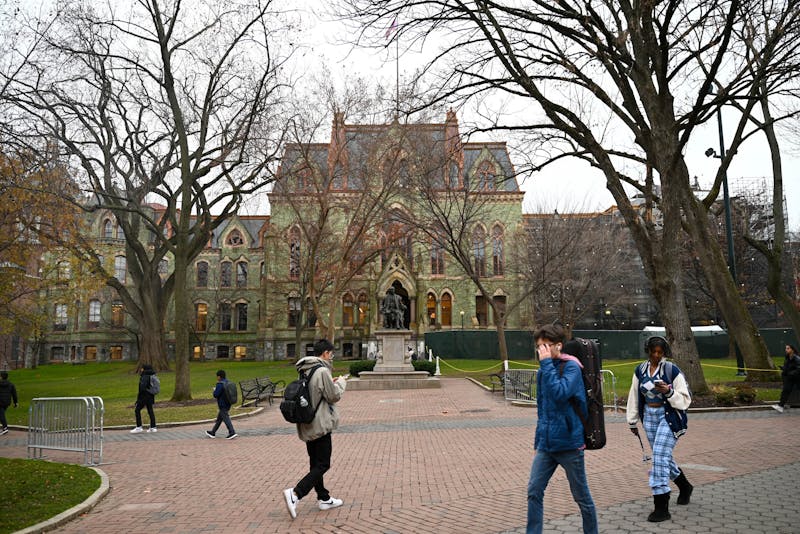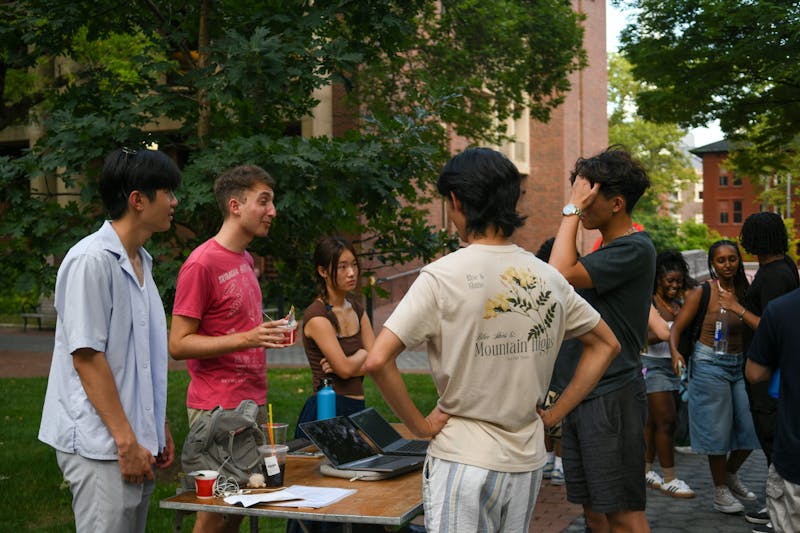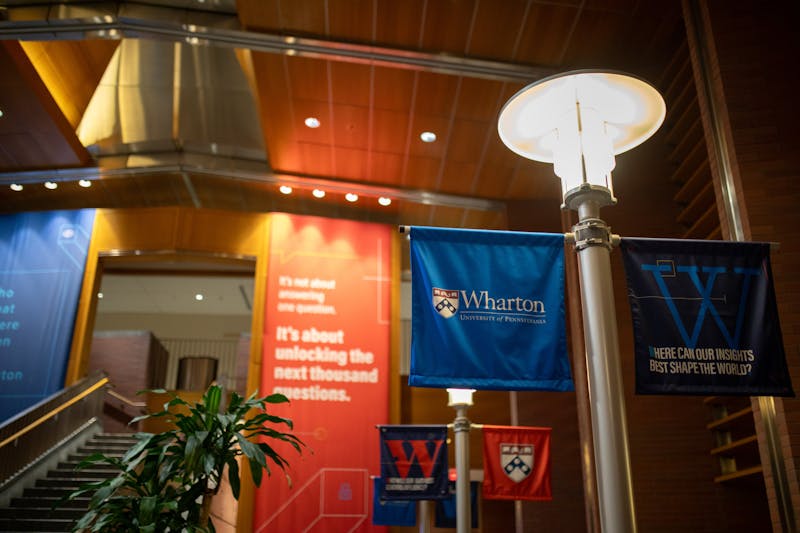
Senior Columnist Mia Vesely discusses the University’s practices of preferential admissions.
Credit: Kate AhnThe cost of a Penn education can reach $92,288 per year for an undergraduate student, and it is only rising. While Penn claims to have very generous financial aid, with 46% of students receiving need-based aid last year, a recent lawsuit has shown that admission practices might not be as “need-blind” as students are often led to believe.
The 2022 lawsuit in question accuses Penn and 16 other institutions of price fixing — conspiring to increase tuition costs for students and withhold aid — and has not been getting nearly as much media attention as it should. Among the Ivy League, six schools were mentioned, excluding only Harvard University and Princeton University. Of the universities mentioned in the suit, 10 have settled with the plaintiffs, and affected students were granted settlements totaling $284 million.
While Penn is adamantly denying the accusations, testimony from Sara Harberson, the associate dean of Penn admissions from 1999-2008, says otherwise. Harberson testified that some student applications were marked “BSI,” for “bona-fide special interest,” leading to a drastically higher rate of admission. She stated that the BSI tag was used for wealthy families or for those entangled with the University Board of Trustees.
According to Harberson, these students “were untouchable” and “would get in almost 100 percent of the time.” She also mentioned that this pattern held “even if the student was incredibly weak.” In 2019, the admission rate for those with this label was 73.18% compared to just 7.14% for students without it.
This means the presence of the label increased a student’s chances of admission by over 900%. This is incredibly unfair and deeply alarming. If the label were used to designate something like aptitude, it might be different, but the length of one’s pursestrings or proximity to Board members should not raise one’s admissions chances in the slightest, let alone by such a dramatic margin.
In the past, I have spoken out against legacy admissions, and I would argue this practice is even more unjustifiable. Any applicant should be able to stand on their rigor relative to their means, and being wealthy already allows access to better schools, tutors and other luxuries. These students especially do not deserve a break when it comes to academics. Every application should be read without knowledge of the student’s financial background.
In a post-affirmative-action world, it is exceptionally important that students are allowed to tell their stories, but when an acronym gifted only through privilege is all some students need for admission, we have a big problem on our hands.
As a “need-blind” school, Penn brags that financial aid is not considered in the admissions decisions, but the practice of designating those with the ability to pay full price undermines this whole system. For the Class of 2028, Penn received over 65,000 applications and admitted 3,508 students. A Penn education is more sought after than ever, and every student deserves a fair chance at a spot.
Penn has made it very clear that expanding its financial aid programs is important. Just recently it launched the Quaker Commitment, an initiative that aims to strengthen Penn’s financial aid for middle-income families, such as excluding primary home equity in financial aid calculations.
While these are wonderful steps that will make affording Penn a lot easier for some, it doesn’t matter if students from low and middle-income families are less likely to even be admitted. I want Penn to acknowledge their shortcomings when it comes to aid and to be more transparent about their admissions processes.
As a student, I encourage you to read about the lawsuit and reach your own conclusions, while being mindful of what the University is promoting and why. It’s not surprising to me that now is the time Penn unveils new systems for financial aid, while still not settling this case regarding its old ones. I hope they put their blinders back on and, unlike little kids in their first few games of hide-and-seek, don’t peek through their fingers at who would be the most lucrative to admit.
MIA VESELY is a College junior studying philosophy, politics, and economics from Phoenix. Her email is mvesely@sas.upenn.edu.
The Daily Pennsylvanian is an independent, student-run newspaper. Please consider making a donation to support the coverage that shapes the University. Your generosity ensures a future of strong journalism at Penn.
Donate











